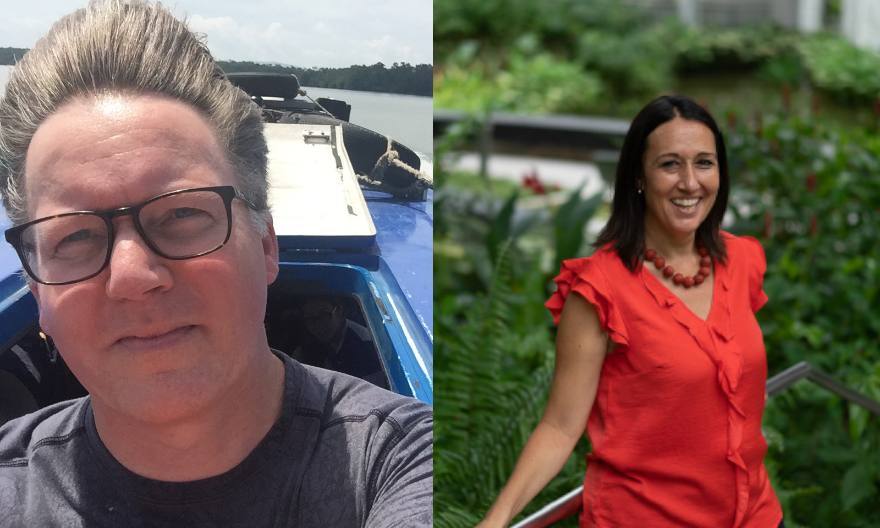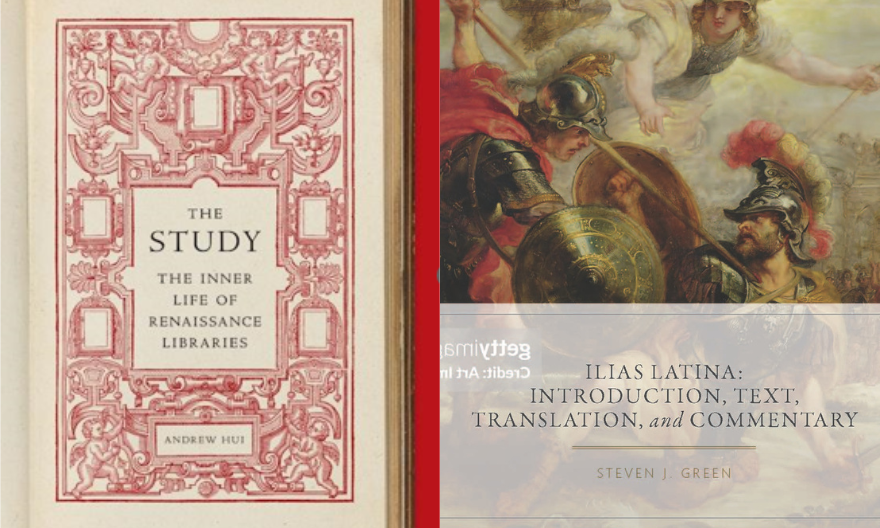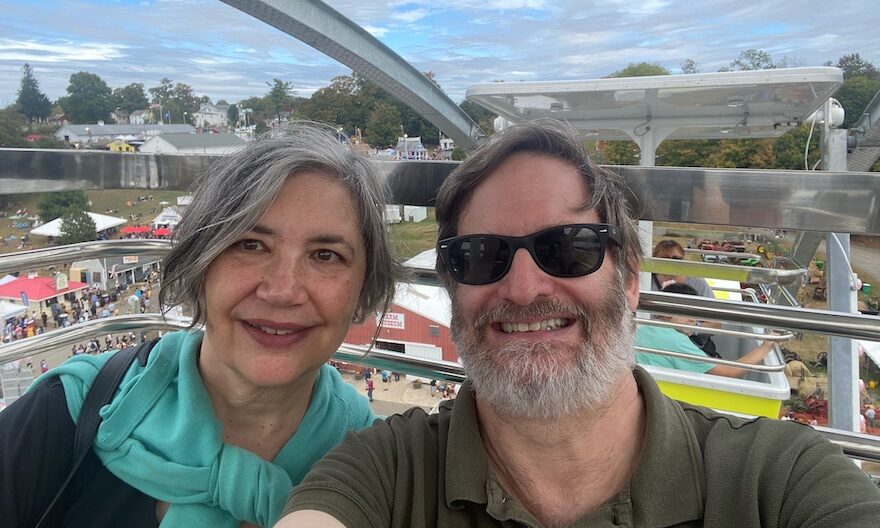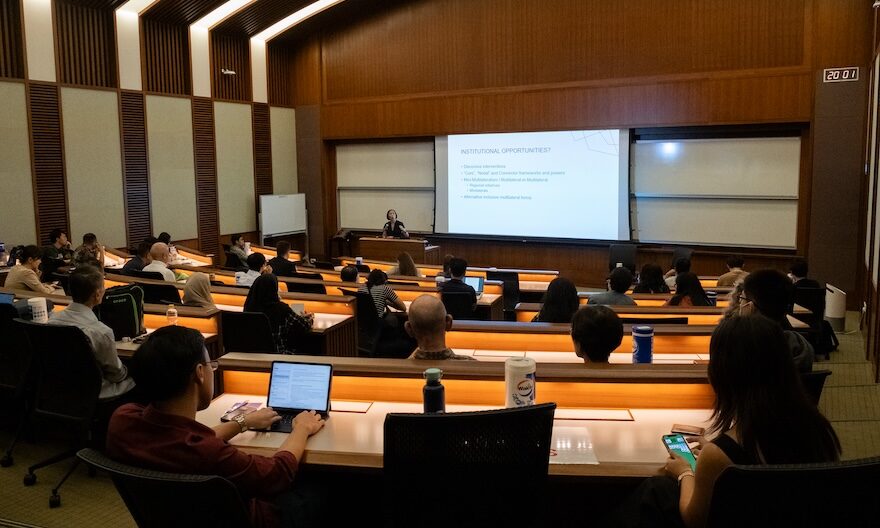Distinguished Teaching Award recipients share perspectives on teaching and working at Yale-NUS
Teaching Award recipients share their most memorable moments at the college
 From left: Dr Philip Johns from the Science Division and Dr Valentina Zuin from the Social Sciences Division.
From left: Dr Philip Johns from the Science Division and Dr Valentina Zuin from the Social Sciences Division.
As a small liberal arts and sciences college, educational excellence is at the core of Yale-NUS’ mission. Every year, the College gives out the Yale-NUS Teaching Award to recognise faculty members with outstanding teaching achievements in and out of the classroom. This year, two recipients received the Distinguished Teaching Award and the Early Career Teaching Award respectively.
In this second part of our Teaching Award series, we spoke to the recipients of the Distinguished Teaching Award, Dr Philip Johns from the Science Division and Dr Valentina Zuin from the Social Sciences Division, to find out more about their teaching philosophy and their more memorable teaching experiences.
Both of you mentioned you place a heavy emphasis on experiential learning. Why do you think this is important, and how does it contribute to Yale-NUS’ unique learning experience?
Dr Zuin: There are a few reasons why I really believe in experiential learning. The first one is that students learn differently. We often assign readings and think that’s the best way to learn, or the only way we should learn. But the reality is that there is a lot of evidence that students learn in different ways. There are students who are more visual, and there are students who need to experience or experiment. So I think it’s important to provide opportunities for different students to learn in different ways, and also acknowledge that some topics are taught better differently.
I also think that students learn more deeply when engaging in experiential learning. It’s one thing to read about how difficult it is to provide services in slums, another one to walk in a slum and appreciate the challenges on the ground. Oftentimes when you’re doing experiential learning, you’re reflecting more deeply on what you’ve learned.
Finally, while there is no evidence of this yet, I have the hunch that experiential learning might improve mental health, because when you engage more deeply, you get more motivated and inspired. You are more likely to work in teams or with real problems when you’re doing experiential learning, and such connections to people and real world issues might take students to appreciate more of what they have or are.
Dr Johns: I teach an introductory Life Sciences course called Dogs as Model Organisms, and what was great about it was that there was no split between the lecture portion of the class and the experiments. Students were designing their own experiments and analysing their own data, and I think they got a lot out of it. That was fun, too.
In your Teaching Award statement, you stressed the importance of close interaction between faculty and students. How would you say this contributes to your experience teaching, and to students’ experiences in the College?
Dr Zuin: Interaction means that I better understand how the students learn, whether they are understanding the material, and whether they are enjoying it. So for me, this idea of close interaction is really to make students more excited about things I’m passionate about.
How would you describe your experience as part of the teaching community here?
Dr Johns: One of the reasons I am so happy [to be here] is because of the colleagues. We can have pretty impassioned arguments and then walk away to lunch together, and everyone comes up with such interesting ideas. I’ve got 100 stories like that, and that’s something I’ve experienced almost nowhere else. It is genuinely just really cool and it makes you look forward to coming to work. And, you know, one of our challenges is trying to make sure some of that excitement infuses into the classroom. We want our students to get excited about what we are excited about as well. And some of my colleagues have done really extraordinary things with students. Matthew Schneider-Mayerson wrote a book where every chapter was a student’s essay. One of the students is a student of mine; when I’m reading the chapter I can just see her personality everywhere. It’s just a lot of fun to be able to see that.
Dr Zuin: I had the opportunity to work with one of my Literature colleagues Heidi Stalla during a Learning Across Boundaries (LAB) project. I learned a lot from her and with her, and I wish there were many more opportunities to teach in teams and really be in the classroom together at the same time. I think that would provide an incredible learning experience, not only for the students, but also for faculty. This is especially important as you start getting more senior, since you can get a fresher perspective from other colleagues.
Learning Across Boundaries (LAB) programmes are a faculty-generated initiative of a short duration that allows faculty to share their scholarship with students outside of the classroom and create an opportunity for students to explore themes of the curriculum in a broader context. It is organised in collaboration with the Centre for International & Professional Experience (CIPE).
What were your most memorable experiences leading a course?
Dr Johns: There was this LAB project I had, and it was called Drones, Bio-drones and Information. I wanted to address a philosophical question: are pets drones? So here’s what’s cool about it. I don’t code well at all, but the LAB had coding, hacking students, making critter cameras, drone mapping, building drones, racing drones, flying drones, and eventually, the students have little independent projects in the last few days. One set of the students had a project where they could fly drones using their own muscle twitches. So how they flexed their own arms determined which way the drone flew.
It gets better than that. If you are a college student, having an electrode that closes and opens up a claw is exciting for about five seconds. But what really broke the class open was when one of the students grabbed these electrodes and put them on his face, so the claws opened and closed when he moved his mouth. So now they were hacking each other, and it was a lot of fun.
——-
Read the first part of the Teaching Award series here, where we spoke to the recipients of the Early Career Teaching Award Assistant Professor of Science (Neuroscience) Ajay Mathuru and Assistant Professor of Science (Physics) Chelsea Sharon.




